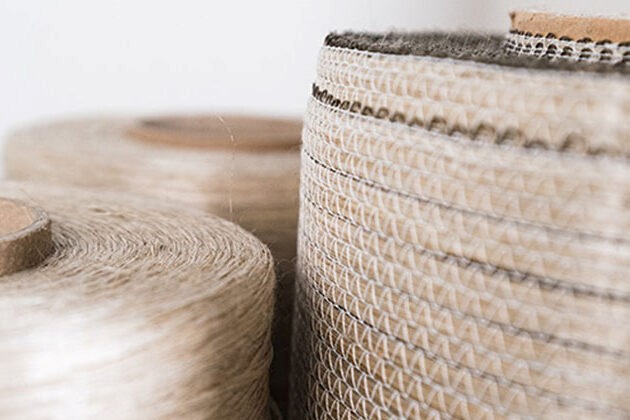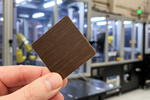Scale Advanced Composites natural fibers target cycling industry
Bio|Power and Cor|Power composite reinforcements aim to reduce materials costs and greenhouse emissions while enhancing performance.

Source | Scale Advanced Biocomposites
Scale Advanced Biocomposites (Grenoble, Isere, France) a textile manufacturer developing bio-based composite reinforcements, has unveiled its Bio|Power and Cor|Power product lines. The materials are designed to replace or enhance carbon fiber. By doubling down on the inherent benefits of natural fibers and bio-based materials, including low density and optimized damping characteristics, Scale hopes to enables composites manufacturers to move to sustainable materials for new levels of performance while reducing materials costs:
- Bio|Power yarns are a blend of multiple natural fibers to create a range of performance and cost characteristics. The first Bio|Power EX blend is expected to reduce fiber costs by up to 40% and greenhouse emissions up to 95% versus carbon fiber.
- Cor|Power is a damping filament which helps reduce the effects of vibration and harshness in carbon fiber by up to 30% when incorporated at 10% by weight.
Scale says that it is initially working with bicycle manufacturers to address industry challenges, including the trade-off between stiffness and comfort — which has been exacerbated by the focus on aerodynamics in modern bicycle design — as well as improving product margins, which particularly benefits manufacturers producing in Europe and North America.
Scale contends that its materials can provide significant benefits to manufacturers and cyclists alike, improving stiffness-to-weight performance, impact resistance and vibration damping for a smoother ride.
“The cycling market is a perfect test bed for us. Cyclists are sophisticated customers with an unwavering demand for performance,” says Lance Johnson, CEO of Scale. “The damping properties of our materials, coupled with the ability to enhance stiffness without adding weight by using Bio|Power in narrower tube profiles, improve product performance while reducing environmental impact.”
“We’re working with Scale as part of a long-term project to improve sustainability in bikes,” says Martin Meir, managing director of Reap Design (Staffs, U.K.). The company has combined Bio|Power and Cor|Power in early testing to reduce carbon fiber content by 20%, increasing frame stiffness by more than 5% without weight penalties. “Additionally, we expect better compliance in the frame and lower transmission of road vibration which will reduce rider fatigue,” Meir adds.
In another collaboration with 3T Cycling (Turin, Italy), Bio | Power has been tested in the company’s 3T RaceMax Italia layup, enhancing stiffness-to-weight of the bottom bracket by 5%. “We’re looking at how Bio|Power can reduce the quantity of material we use while preserving our current stiffness-to-weight, to have an even greater impact on our greenhouse emissions,” Enrique Romero Pineda, managing engineer, 3T Cycling, says.
Related Content
-
Bio-based SiC ceramics from wood polymer composites
Austrian research institute Wood K plus makes 95% silicon carbide ceramics more sustainable (>85% bio/recycled content), enables 3D shapes via extrusion, injection molding and 3D printing.
-
Augmenting engineered thermoplastics with natural fibers
The Paris Climate Accord mandate for net-zero carbon by 2050 has kick-started an innovation revolution for natural fibers and sustainably engineered resins.
-
European boatbuilders lead quest to build recyclable composite boats
Marine industry constituents are looking to take composite use one step further with the production of tough and recyclable recreational boats. Some are using new infusible thermoplastic resins.















